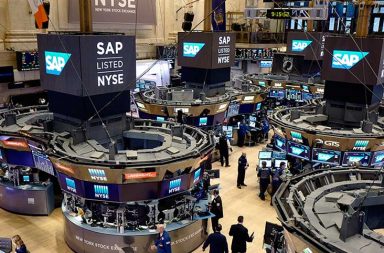On Tuesday, world stocks were stuck in a dive, and this was their biggest two-day dive in almost six months. Commodities were also stuck in reverse this past Tuesday. Concerns over the increasing global borrowing costs were able to cool the markets’ crazy start to 2018.
U.S. Treasury yields had come to a stop because of Lacklustre German state inflation numbers. The standard for world lending rates is at 2.7 percent in Europe. The U.S. markets mood remains uncertain regardless of the busy day ahead.
The Federal Reserve was expected to stay on course, according to Janet Yellen. She expected more interest rate increases in her last meeting in charge. In Donald Trump’s first State of the Union address was also approaching large.
Apple’s iPhone sales had hit its largest drop in the last five months. This had all future markets looking to Wall Street going down again after he bond market concerns about Apple.
This misfortune has rolled into other areas of the world, such as Asia and Europe. Asia had its worst day in 2018 so far. In Europe stocks were down for the fourth day in the last five. Traders pointed at cyclical sectors such as financials and mining.
The Equity strategist at JP Morgan, Prabhay Bhadani, made a statement in saying, “There were a number of technical indicators pointing towards market complacency and today’s move should provide some relief”.

THE MORNING REPORT
Start your workday the right way with the news that matters most.
Your information is 100% secure with us and will never be shared Disclaimer & Privacy Policy
“You are seeing some sector rotation with again the winners hit the hardest. People are still looking to stay invested but looking at things that have not performed.”
Brent Oil fell under $70 a barrel, and this was a big hit from commodity markets. Also industrial metals such as nickel went over 2 percent and this cut back their losses.
The main focus still remains the bond and currency markets. The increase in Treasury yields above 2.7 percent had caused U.S. borrowing costs to reach their highest since 2014.
The Bond market has been preparing themselves from the potentially aggressive language from the Federal Reserve. They are preparing themselves for the two-day policy meeting on Tuesday.
Trump’s State of the Union address had a heavy focus on his thoughts on an infrastructure overhaul and trade. The future of the NAFTA pact is still undecided.
The Euro rose to $1.2424 having begun the European session at $1.2373. The Euro and the Yen avoided another day of falls due to the dollar’s relapse.
There was plenty of positive data coming from Europe regardless of German inflation, which is weaker than expected. The Economy in France is doing very well as it comes off its strongest year since 2011. Last year Poland’s growth came in at 4.6 percent, and this is 2 percent better than what it was in the previous year.
Brent tensions continue to harass the British government and Theresa May, their leader. The pound has struggled back above $1.41 due to the renewed pressure of Brexit.
Data shows that the housing market in Britain is continuing to loose heat. Mortgage approvals are at their lowest in nearly three years. this is following the Bank of England’s initial interest rate spike in a decade.
 D. Marie
D. Marie 



